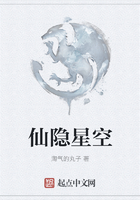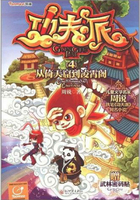THE SEMITIC COLONY OF CARTHAGE ON THE NORTHERN COAST OF AFRICA AND THE INDO-EUROPEAN CITY OF ROME ON THE WEST COAST OF ITALY FOUGHT EACH OTHER FOR THE POSSESSION OF THE WESTERN MEDITERRANEAN AND CARTHAGE WAS DESTROYED.
THE little Phoenician trading post of Kart-hadshat stood on a low hill which overlooked the African Sea, a stretch of water ninety miles wide which separates Africa from Europe.
It was an ideal spot for a commercial centre. Almost too ideal.
It grew too fast and became too rich. When in the sixth century before our era, Nebuchadnezzar of Babylon destroyed Tyre, Carthage broke off all further relations with the Mother Country and became an independent state--the great western advance-post of the Semitic races.
Unfortunately the city had inherited many of the traits which for a thousand years had been characteristic of the Phoenicians. It was a vast business-house, protected by a strong navy, indifferent to most of the finer aspects of life.
The city and the surrounding country and the distant colonies were all ruled by a small but exceedingly powerful group of rich men, The Greek word for rich is "ploutos" and the Greeks called such a government by "rich men" a "Plutocracy." Carthage was a plutocracy and the real power of the state lay in the hands of a dozen big ship-owners and mine-owners and merchants who met in the back room of an office and regarded their common Fatherland as a business enterprise which ought to yield them a decent profit. They were however wide awake and full of energy and worked very hard.
As the years went by the influence of Carthage upon her neighbours increased until the greater part of the African coast, Spain and certain regions of France were Carthaginian possessions, and paid tribute, taxes and dividends to the mighty city on the African Sea.
Of course, such a "plutocracy" was forever at the mercy of the crowd. As long as there was plenty of work and wages were high, the majority of the citizens were quite contented, allowed their "betters" to rule them and asked no embarrassing questions. But when no ships left the harbor, when no ore was brought to the smelting-ovens, when dockworkers and stevedores were thrown out of employment, then there were grumblings and there was a demand that the popular assembly be called together as in the olden days when Carthage had been a self-governing republic.
To prevent such an occurrence the plutocracy was obliged to keep the business of the town going at full speed. They had managed to do this very successfully for almost five hun- dred years when they were greatly disturbed by certain rumors which reached them from the western coast of Italy. It was said that a little village on the banks of the Tiber had suddenly risen to great power and was ****** itself the acknowledged leader of all the Latin tribes who inhabited central Italy.
It was also said that this village, which by the way was called Rome, intended to build ships and go after the commerce of Sicily and the southern coast of France.
Carthage could not possibly tolerate such competition. The young rival must be destroyed lest the Carthaginian rulers lose their prestige as the absolute rulers of the western Mediterranean. The rumors were duly investigated and in a general way these were the facts that came to light.
The west coast of Italy had long been neglected by civilisation.
Whereas in Greece all the good harbours faced eastward and enjoyed a full view of the busy islands of the AEgean, the west coast of Italy contemplated nothing more exciting than the desolate waves of the Mediterranean. The country was poor. It was therefore rarely visited by foreign merchants and the natives were allowed to live in undisturbed possession of their hills and their marshy plains.
The first serious invasion of this land came from the north.
At an unknown date certain Indo-European tribes had managed to find their way through the passes of the Alps and had pushed southward until they had filled the heel and the toe of the famous Italian boot with their villages and their flocks.
Of these early conquerors we know nothing. No Homer sang their glory. Their own accounts of the foundation of Rome (written eight hundred years later when the little city had become the centre of an Empire) are fairy stories and do not belong in a history. Romulus and Remus jumping across each other's walls (I always forget who jumped across whose wall) make entertaining reading, but the foundation of the City of Rome was a much more prosaic affair. Rome began as a thousand American cities have done, by being a convenient place for barter and horse-trading. It lay in the heart of the plains of central Italy The Tiber provided direct access to the sea.
The land-road from north to south found here a convenient ford which could be used all the year around. And seven little hills along the banks of the river offered the inhabitants a safe shelter against their enemies who lived in the mountains and those who lived beyond the horizon of the nearby sea.
The mountaineers were called the Sabines. They were a rough crowd with an unholy desire for easy plunder. But they were very backward. They used stone axes and wooden shields and were no match for the Romans with their steel swords. The sea-people on the other hand were dangerous foes. They were called the Etruscans and they were (and still are) one of the great mysteries of history. Nobody knew (or knows) whence they came; who they were; what had driven them away from their original homes. We have found the remains of their cities and their cemeteries and their waterworks all along the Italian coast. We are familiar with their inscriptions.
But as no one has ever been able to decipher the Etruscan alphabet, these written messages are, so far, merely annoying and not at all useful.
Our best guess is that the Etruscans came originally from Asia Minor and that a great war or a pestilence in that country had forced them to go away and seek a new home elsewhere.















